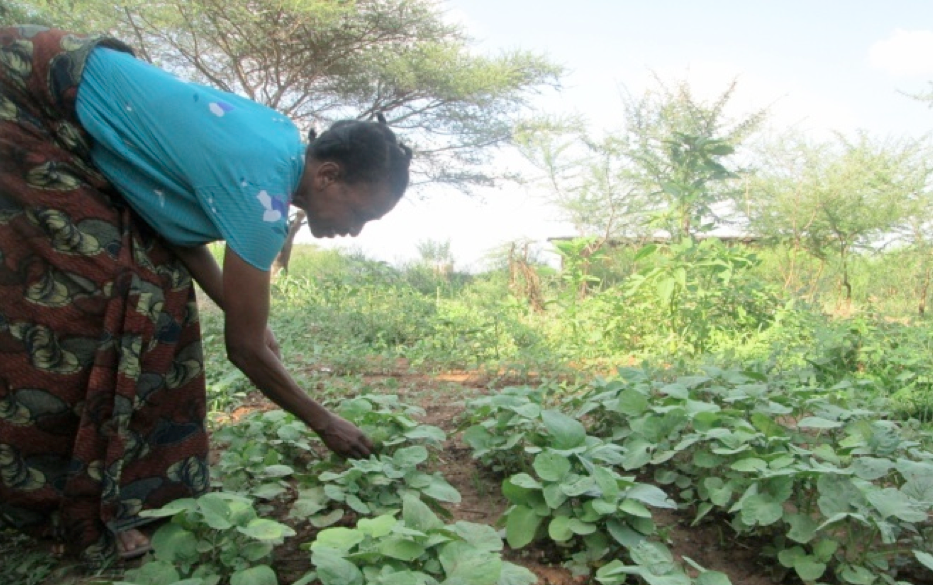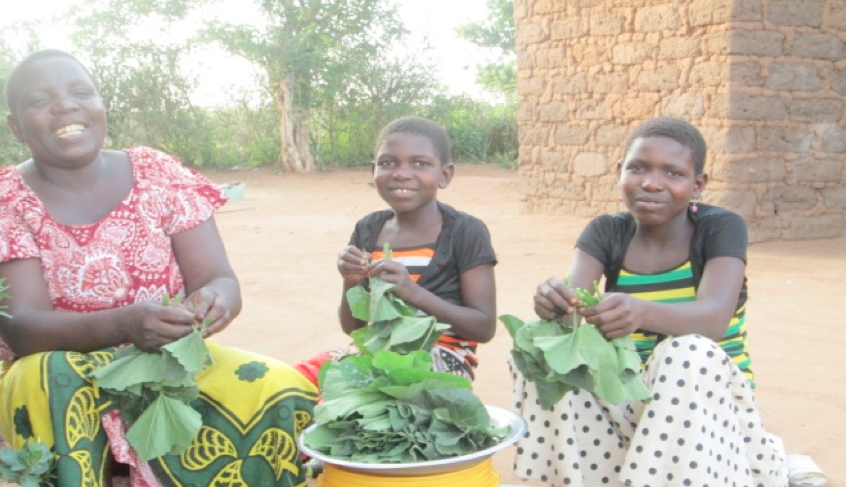
27 Mar Gardens Of Hope
by Casey Schilperoort
photos by Saggiah Wright
“You will be like a well-watered garden, like a spring whose waters never fail.” – Isaiah 58:11

These words from the prophet Isaiah are a beautiful promise. But in the dry and dusty village of Mwamalili, this imagery feels strange and out of reach. Droughts threaten water supplies and cloudless skies stretch on for months. Entire fields lay cracked and waiting, like the lips of hungry children longing for a harvest that is not yet ready.
But a promise is a promise.
In this community with a long history of farming and cattle-raising, there is also a long history of seasonal hunger. Unpredictable rainfall, low soil fertility, and low-quality seeds are factors which seriously threaten food security. The months of January through March have earned the local nickname “Hunger Season,” and it is happening right now. The food stored up from last season’s harvest is depleted before the next harvest comes. Most families try to survive on one meal a day. Some will go a day or even two between meals.
In response to requests from the local community, Lahash’s partner organization, Path of Hope, helped launch a pilot project aimed at alleviating seasonal hunger. The project provides hands-on training in conservation farming techniques, organic vegetable gardening, and rainwater collection. As a result, small kitchen gardens have sprouted up around the village, remaining green even in the driest months.
“The church chose not to work for the community, but rather to work with the community to enhance local ownership and sustainability of the projects,” explains Saggiah Wright, a Path of Hope staff member. After the initial trainings, the families provide the materials and labor to construct their own kitchen gardens. “The construction of the organic vegetable gardens involves simplified procedures that can be easily mastered by the local village farmers,” says Wright. “Gardens are established close to home kitchens. Waste water is used to irrigate plants in the vegetable garden, so they can thrive well during the dry season. A cover of heavy mulch does not allow growth of weeds and ensures water retention.”
Families are also taught new methods for collecting rainwater. “Our project farmers are already trained on how to construct two different types of water tanks, and so far we have seen a total of four tanks completely constructed.” The larger tanks can hold up to 10,000 liters of water for domestic use and garden irrigation.
Mrs. Emmanuel Mungo is one of the local farmers in the pilot program. “I thank God I am a part of this project,” she says. “In the past, I used to buy green vegetables and tomatoes far out near the river. Today I have my own gardens, and I don’t have to wait for the rains before I can plant. I use fresh vegetables from my garden for food at home. And I have been harvesting and selling surplus tomatoes!”
As the gardens grow, so does interest in the project. Only one third of the families that Path of Hope serves were selected for the pilot program, and now they all desire to receive the same training and reap the same benefits. Path of Hope has proposed an extension of this project to include all the families and children they serve, and they have invited Lahash to join them! A portion of the money raised from Rice & Beans Month will help fund the expansion of the Kitchen Garden Project.
As we choose to eat less during Rice & Beans Month, it is sobering to remember that Hunger Season is forcing our friends in Tanzania to do the same, and under much harsher conditions. But with God’s help, our sacrifice and their hard work can change that.
In Isaiah 58, the prophet proclaims that when we care for the poor and hungry in our community, our light will rise, the water will flow, and the gardens will thrive. This promise is fulfilled in the patches of bright green sprouting up throughout Mwamalili village. And scattered in among the vegetables, you’ll find that something else is also growing.
Hope.
________________________________________________________________________
Article adapted from Hope Is Alive, a quarterly magazine publication of Lahash International. You can sign-up online to receive this free magazine.



